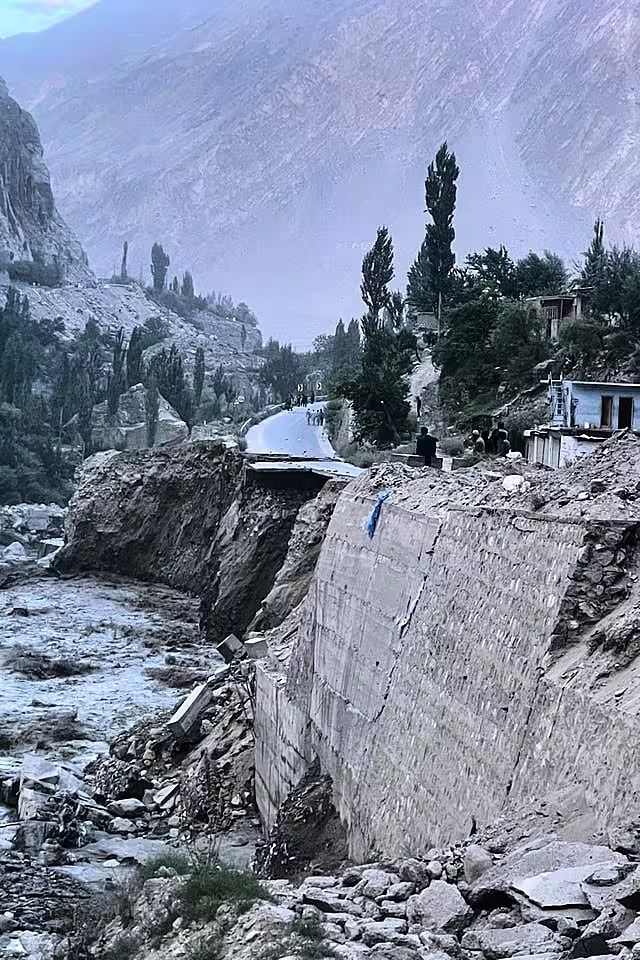
A powerful landslide on Monday morning killed seven volunteers working to restore a drainage channel damaged by flash floods in northern Pakistan and injured three others, officials said.
Rescue teams have recovered bodies after a landslide hit Danior town in Gilgit-Baltistan at dawn and taken the injured to a hospital, regional government spokesman Faizullah Faraq said.
The tragedy came a day after flash floods caused by a glacial lake outburst flood damaged the vital Karakoram Highway passing through Danjoor, disrupting traffic and trade between Pakistan and China. Engineers, workers and heavy machinery had been deployed to begin restoration work, Mr Farak said on Monday.
Meanwhile, several landslides near the damaged mountain highway have damaged houses in Daniora and surrounding areas while rescuers have been evacuating flood victims to safer areas, according to Hassan Ali, the local police chief, adding that basic food items are being provided to the displaced.

Mr Ali said the glacial lake outburst on Sunday was significant, causing the Hunza River to burst its banks and cause flash flooding that damaged crops. Authorities were still assessing the impact, he added.
Chief Minister Gulbar Khan in a statement on Monday called the seven victims “heroes who gave their lives for the sake of society.”
According to the region’s official website, Gilgit-Baltistan is famous for its picturesque glaciers, which provide 75% of the country’s water supplies.
Last month, landslides killed 18 tourists when flash floods washed away their cars.
Experts say glacial lake outburst floods occur when water trapped by a glacier is suddenly released, often due to the collapse of ice or debris barriers.
Scientists say rising temperatures linked to climate change are accelerating the melting of glaciers in Pakistan’s northern mountains, increasing both the area and number of these lakes.
A study published last week by the international network of scientists World Weather Attribution found that global warming increased precipitation between June 24 and July 23 by 10-15%.
Pakistan produces less than 1% of the world’s greenhouse gases, but research shows the country suffers disproportionately from extreme weather.
Sourse: breakingnews.ie